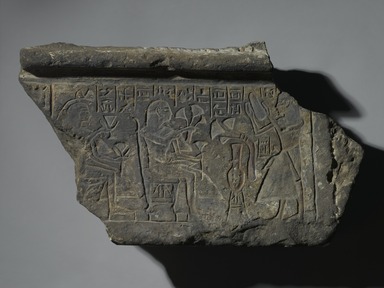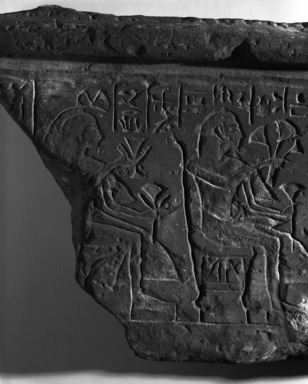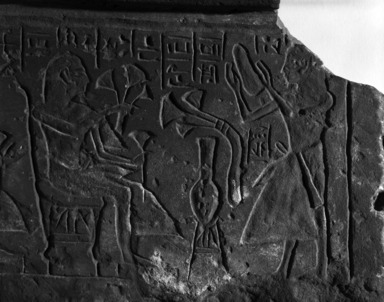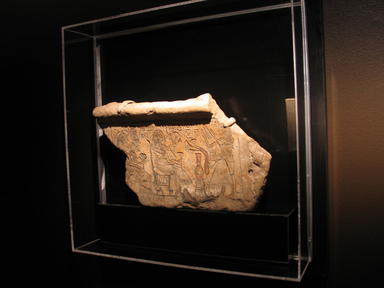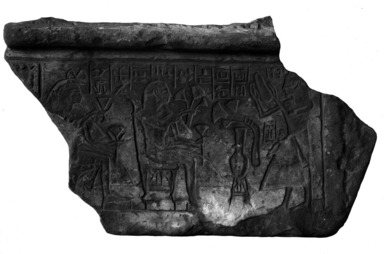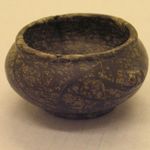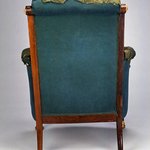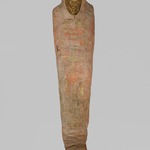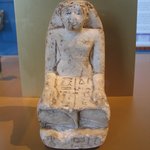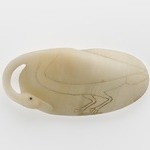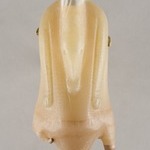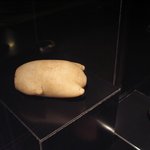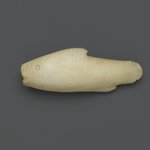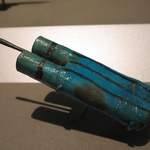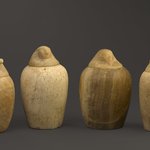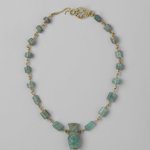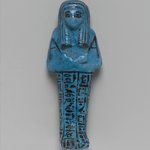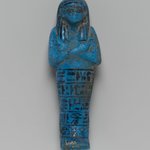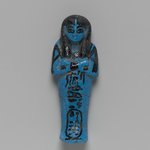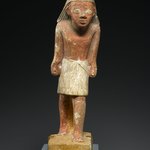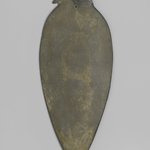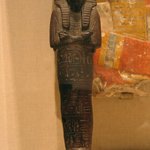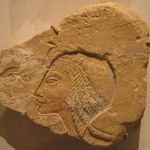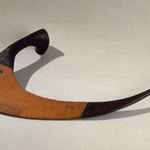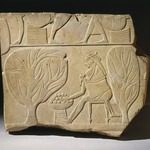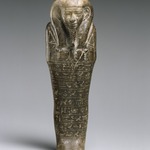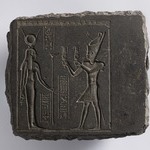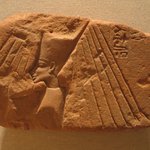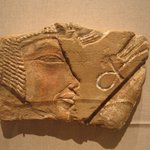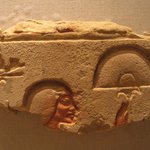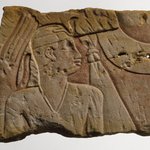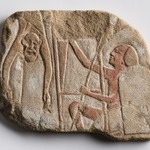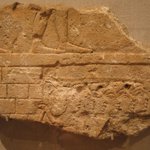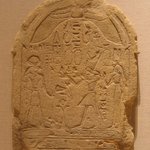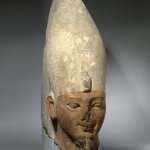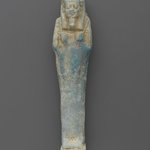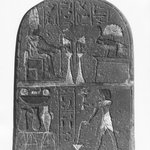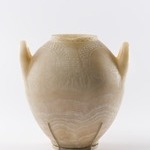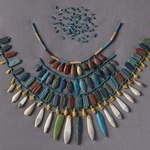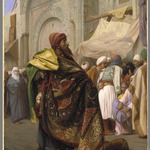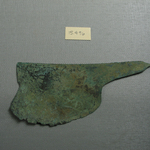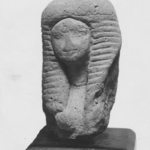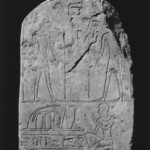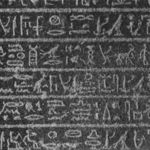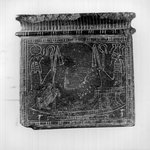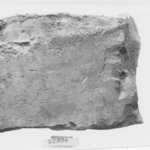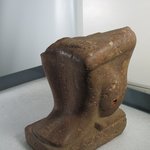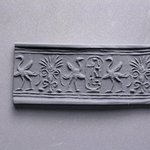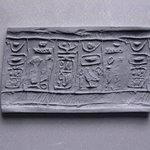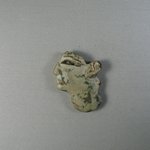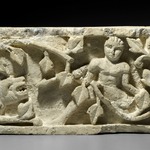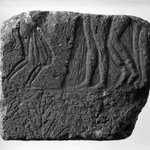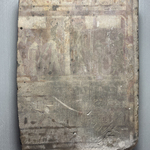Fragment of Inscribed Door Lintel
Egyptian, Classical, Ancient Near Eastern Art
This relief comes from the element above the door of a tomb. It depicts the deceased and his wife receiving drink and lotus offerings from a priest. The daily opening of the lotus flower was a symbol of rebirth for the Egyptians.
MEDIUM
Sandstone, pigment
DATES
ca. 1292–1190 B.C.E.
DYNASTY
Dynasty 19
PERIOD
New Kingdom
DIMENSIONS
14 3/8 x 25 x 5 in. (36.5 x 63.5 x 12.7 cm)
(show scale)
ACCESSION NUMBER
37.1502E
CREDIT LINE
Charles Edwin Wilbour Fund
PROVENANCE
Archaeological provenance not yet documented; by 1852, acquired in Egypt by Henry Abbott; 1859, purchased by the New-York Historical Society, New York, NY; 1937, loaned from the New-York Historical Society to the Brooklyn Museum; September 1948, purchased from the New-York Historical Society by the Brooklyn Museum.
Provenance FAQ
CATALOGUE DESCRIPTION
Before a man is an offering table which supports a tall-necked vase and flowers. Opposite the table is a man wearing a long skirt, and holding up before him a piece of meat. Above the table are two columns of hieroglyphic text. By the man’s head is text, and also by his stomach. On the molding are traces of lines in red paint. There are also traces of red paint. There are also traces of red paint on the human figures, some of the object and hieroglyphs. There is a plain border under the scene (4.2 cm in height). The garment bear traces of white paint. The preserved part of the bottom edge is smooth; the other ends are ragged.
Condition: Only bottom of cavetto preserved; top of head of standing man missing; most of seated woman’s body missing; entire surface darkened.
MUSEUM LOCATION
This item is not on view
CAPTION
Fragment of Inscribed Door Lintel, ca. 1292–1190 B.C.E. Sandstone, pigment, 14 3/8 x 25 x 5 in. (36.5 x 63.5 x 12.7 cm). Brooklyn Museum, Charles Edwin Wilbour Fund, 37.1502E. Creative Commons-BY (Photo: Brooklyn Museum, 37.1502E_PS1.jpg)
IMAGE
overall, 37.1502E_PS1.jpg. Brooklyn Museum photograph, 2007
"CUR" at the beginning of an image file name means that the image was created by a curatorial staff member. These study images may be digital point-and-shoot photographs, when we don\'t yet have high-quality studio photography, or they may be scans of older negatives, slides, or photographic prints, providing historical documentation of the object.
RIGHTS STATEMENT
Creative Commons-BY
You may download and use Brooklyn Museum images of this three-dimensional work in accordance with a
Creative Commons license. Fair use, as understood under the United States Copyright Act, may also apply.
Please include caption information from this page and credit the Brooklyn Museum. If you need a high resolution file, please fill out our online
application form (charges apply).
For further information about copyright, we recommend resources at the
United States Library of Congress,
Cornell University,
Copyright and Cultural Institutions: Guidelines for U.S. Libraries, Archives, and Museums, and
Copyright Watch.
For more information about the Museum's rights project, including how rights types are assigned, please see our
blog posts on copyright.
If you have any information regarding this work and rights to it, please contact
copyright@brooklynmuseum.org.
RECORD COMPLETENESS
Not every record you will find here is complete. More information is available for some works than for others, and some entries have been updated more recently. Records are frequently reviewed and revised, and
we welcome any additional information you might have.
